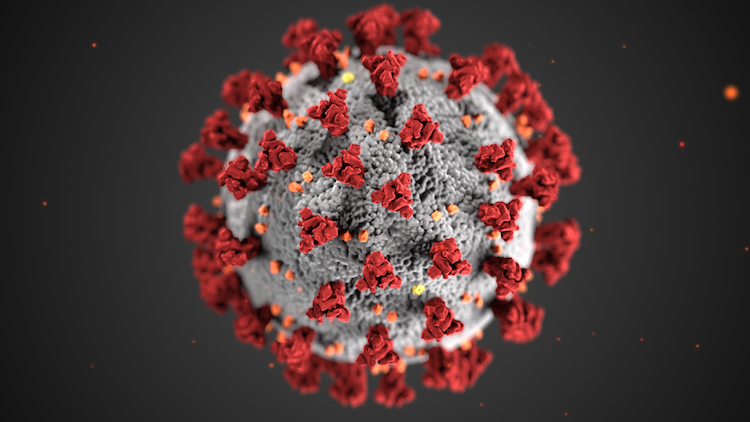COVID-19 (SARS-CoV-2) Pandemic 2020 Intermediate

This illustration, created at the Centers for Disease Control and Prevention (CDC), reveals ultrastructural morphology exhibited by coronaviruses.
Reading Guide
The COVID-19 worldwide pandemic has expanded the interest in the scientific community toward the development and application of numerical tools to simulate the potential atmospheric transport of the virus SARS-CoV-2 from one person to another. Simulation tools may help in: 1) assessing and minimizing the risk of contamination; 2) design and modify indoor environments (e.g., hospitals) in order to reduce workers and patients exposure; and 3) helping decision makers in establishing science-based prevention measures (e.g., safe distances).
We present below a list of selected publications and events.
Material
- Airborne Transmission of SARS-CoV-2: A Virtual Workshop
- Zannetti, P. (2020) From A to B – Simulation of Atmospheric Pathway. Keynote Speaker, Virtual Workshop on COVID-19: Challenges in Research and Education. Organized by the American Society of Thermal and Fluids Engineers (ASTFE). August 31, 2020. Presentation provides a basic summary of numerical methods available for simulating the atmospheric pathway of virus-contaminated droplets. (Presentation PDF) (Presentation Video, starting at 1:56:50)
- Zannetti, P. (2020) Simulation Modeling of COVID-19: Global Spread and Short-Range Contamination. SPECIAL COLLOQUIUM ON COMPUTATIONAL ENGINEERING MATHEMATICS (CEM) AND DATA SCIENCE UNITED STATES MILITARY ACADEMY (USMA), WEST POINT, NY, NOVEMBER 18, 2020. (Presentation PDF) (SIR Model download)
- Steven R. Hanna (2020): Letter to the editor on simple short range transport and dispersion (T&D) modeling of COVID-19 virus, indoors and outdoors, Journal of the Air & Waste Management Association, DOI: 10.1080/10962247.2020.1811611. An interesting outline of some simple basic methods for modeling the transport and dispersion of COVID-19 from a single source (e.g., a person coughing) at small distances and small times, both indoors and outdoors.
- Vuorinen V. et al. (2020) Modelling aerosol transport and virus exposure with numerical simulations in relation to SARS-CoV-2 transmission by inhalation indoor
- Anderson, E. (2020) Consideration of the Aerosol Transmission for COVID‐19 and Public Health
- Mittal, R. et al. (2020) The flow physics of COVID-19
- Bourouiba, L. (2020) Turbulent Gas Clouds and Respiratory Pathogen Emissions - Potential Implications for Reducing Transmission of COVID-19
- NIST Airflow Model Could Help Reduce Indoor Exposure to Aerosols Carrying Coronavirus
- Indoor Air and COVID-19 Key References and Publications
- Estimated Airborne Decay of SARS-CoV-2 (virus that causes COVID-19)
- Chen, T. et al. (2020) A mathematical model for simulating the phase-based transmissibility of a novel coronavirus
- Chaudhuri, S. et al. (2020) Modeling the role of respiratory droplets in Covid-19 type pandemics
- Dbouk, T. and Drikakis D. (2020) On coughing and airborne droplet transmission to humans
- Beans, C. (2020) Fluid dynamics work hints at whether spoken word can spread COVID-19
- Prabhakaran, H. (2020) Spread of the Novel Coronavirus (SARS-CoV-2): Modeling and Simulation of Control Strategies
- A 3D model of a person coughing in an indoor environment – how an aerosol cloud travels in the air
- Yan, Z. and Lan, Y. (2020) Modeling COVID-19 infection in a confined space
- Baldasano, J. M. (2020) COVID-19 lockdown effects on air quality by NO2 in the cities of Barcelona and Madrid (Spain)
- Thomson, S. and E. C. Ip (2021) COVID-19 emergency measures and the impending authoritarian pandemic
Guide prepared by P. Zannetti (9/2020; updated 1/2021). For corrections or expansions please contact us.